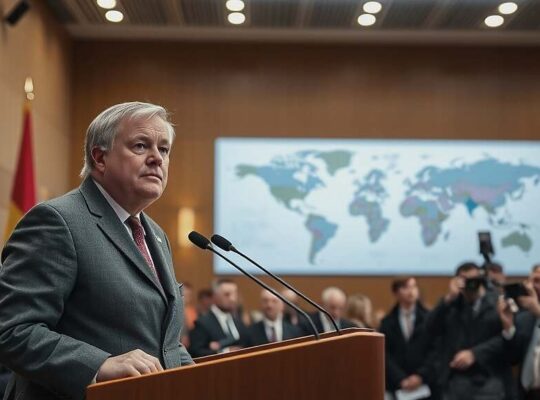The Bundesrat, Germany’s upper house representing the federal states, has temporarily halted a government package designed to stabilize contributions to the statutory health insurance system (GKV), triggering the Mediation Committee process. The move signifies escalating tensions between the federal government and the states over the financial sustainability of healthcare and raises concerns about the future of Germany’s social safety net.
The proposed savings package, championed by Federal Health Minister Nina Warken (CDU), aimed to prevent increases in GKV contributions at the beginning of next year. However, the Bundesrat’s intervention underscores deep-seated anxieties regarding the long-term impact of the plan, particularly the proposed €1.8 billion in cuts to hospital funding.
The states’ primary criticism centers on the potential for these cost-saving measures to be passed on to them, exacerbating their existing financial obligations. They are demanding legally binding assurances that any such financial burden would be a one-time occurrence, resisting what they perceive as a recurring cycle of fiscal pressure. This reflects a broader sentiment among the states that the federal government is inadequately sharing the financial responsibility for healthcare.
Minister Warken sharply criticized the Bundesrat’s decision, characterizing it as “a bad signal for the German economy”. She argued that the intervention undermines efforts to establish a stable foundation for both the GKV and the social care insurance systems, adding that resorting to increased contributions or tax subsidies is unsustainable. The situation, Warken emphasized, risks damaging Germany’s economic competitiveness.
The government maintains that the agreed-upon measures, already ratified by the Federal Cabinet and Bundestag, represent a balanced approach to stabilizing the system. They involve capping the increase in hospital payments for the coming year to align with the actual development of healthcare costs.
However, the intervention highlights a fundamental disagreement about the appropriate balance between federal and state responsibilities in financing healthcare. While the government portrays the effort as crucial for stimulating economic growth after a period of stagnation and high social security contributions, critics argue that the proposed cuts are a short-sighted solution that fails to address the underlying systemic issues plaguing Germany’s hospital sector.
Warken acknowledges the precarious financial situation of hospitals, asserting that the federal government already provides significant financial relief. However, she also pointedly accused the states of failing to adequately fulfill their own funding obligations, a statement likely to fuel further political sparring over the future of healthcare financing in Germany. The activation of the Mediation Committee now signals a protracted and potentially contentious negotiation process.












